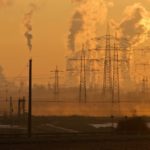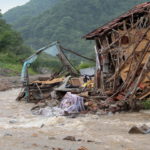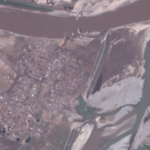March 17, 2021, by Joseph S. Bermudez Jr., Victor Cha, Marie DuMond, Jonathan E. Hillman and Maesea McCalpin—
Although significant political barriers remain to reconnecting the Korean peninsula, there is merit in substantive study of the types of energy infrastructure connections that would best promote regional growth and stability. The cases examined in this report underscore North Korea’s dire need for energy infrastructure investment and the importance of it meeting the G20 quality infrastructure investment principles.
December 4, 2017, by Marie DuMond—
South Korea and the United States generally share similar estimations of China’s and Japan’s blind spots in a unification scenario. Both believe that Beijing has the most prominent blind spot on domestic stabilization and refugees, and that Japan shares similar concerns, suggesting that all four powers could prioritize law and order in a unification scenario.
November 13, 2017, by Marie DuMond—
Beyond Parallel’s first-ever survey of expert assessments on unification-related issues indicate South Korea and the United States share the common view that domestic stabilization and unification costs constitute the most critical unification blind spots with a high degree of concern but low levels of knowledge for both countries.
October 18, 2017, by Marie DuMond—
Domestic stabilization is the most critical issue with unification for South Korean officials and experts, registering the highest composite score (i.e., high level of concern and low level of knowledge). This means civil-military relations, law and order, and stability in the North represent the issues for which Koreans see great consequences for national interests, but for which they have little prior knowledge or understanding. Hence, it is the greatest potential “blind spot” of unification. Costs related to unification rank a close second for South Koreans, followed by refugees, nuclear weapons, and human rights.
November 2, 2016, by Andrew Natsios—
Between August 29 and September 1, 2016, Typhoon Lionrock poured a foot of rain onto parts of North Korea causing widespread flooding, the most severe being near the Tumen River... Between August 29 and September 1, 2016, Typhoon Lionrock poured a foot of rain onto…
November 2, 2016—
Heavy rains triggered by Typhoon Lionrock hit the northern part of North Korea in late August. Extensive damage to infrastructure and agricultural fields occurred as a result. Examining satellite imagery is helpful in assessing the extent of flood damage.
April 8, 2016—
A survey study of 233 of the United States’ top Asia/Korea experts, government officials, scholars, and opinion leaders found that domestic stabilization, not nuclear weapons, ranks as the #1 issue for the U.S. with unification (i.e., highest composite score in the entire survey in terms of most acute lack of knowledge/most acute concern for U.S. interests). The top four blind spots for the U.S.: 1) domestic stabilization; 2) nuclear weapons; 3) economic development; 4) cost.







